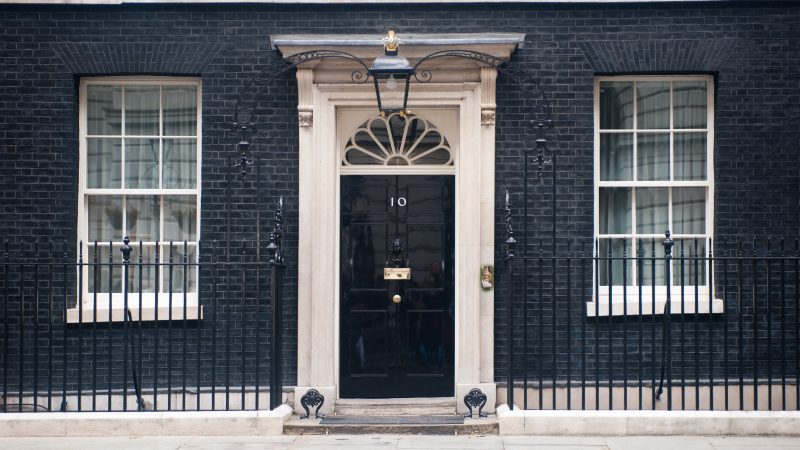
Keir Starmer has promised a Labour government would do things differently; that his administration would be mission-driven and no longer resort to temporary fixes for the myriad problems facing Britain.
But to achieve the step change he is promising, Starmer will need to fix the heart of government – Number 10, Cabinet Office, and the Treasury.
These centuries-old institutions – once the envy of the world – have been showing cracks for some time, fixed so far by sticking plasters. But temporary fixes will no longer do.
Over the last year, the Institute for Government’s Commission on the Centre of Government has worked with former prime ministers and cabinet ministers, civil servants and leading voices from industry, academia, civil society, and journalism – from across the UK and around the world – to produce a fresh proposal for a modern centre of government.
The final report, published this week, acts as a guide to Starmer in how to make good on his promise to do things differently – a blueprint for mission-driven government.
Perhaps more than anything else, mission-led government is about a long-term focus on a clear set of priorities on which all of government, and the country, can collaborate. For too long, government has found itself in crisis response mode, rarely able to look more than 12 months ahead – often far less.
Policies have been dropped, replaced, or re-invented by an ever-changing cast of ministers. Budgets beyond the next year either do not exist or are based on fictional assumptions. Governments panic, centralise and retreat into their institutional siloes, while delivery often becomes a promise for a future that never comes.
Labour needs a clear strategy for government with clear direction
If a Starmer government is going to break out of this cycle and reorientate around long-term missions, it needs to work differently. That means starting from a clear, whole of government strategy – set out at the beginning of a Parliament and specifying the outcomes it is seeking to achieve in each mission.
It needs to have clear direction – with missions overseen by an executive committee of cabinet ministers that holds the system to account for their delivery.
Prime ministers often find their agenda driven by spending decisions taken in the Treasury – rather than the other way round. No matter how close the relationship between the occupants of Number 10 and Number 11 when they enter office, history shows that prime ministers need more support to set and drive their agenda.
Starmer should appoint a new, senior First Secretary of State, responsible for overseeing the delivery of the government’s priorities and missions. That individual, alongside the Chancellor, must be a key part of the political team driving missions.
Rather than reaching for structural options like splitting the Treasury, Starmer should open up decision-making with a new shared strategy and budget process. A new approach that will make missions the shared starting point for budgets and policies that span the departments and tiers of government.
But even with a better institutional relationship with the Treasury and a fixer in the shape of a First Secretary of State, a UK prime minister is still under-powered in comparison to other international leaders.
Mission-led government needs stronger institutions at its core
The prime minister of a mission-led government needs to be served by a smaller, more powerful institution at the centre of government – a Department for the Prime Minister and Cabinet, combining the relevant parts of the current Number 10 and Cabinet Office.
Mission-led government needs stronger institutions at the centre of government. As the centre of UK government has become weaker, its desire to micromanage has increased. The opposite is needed. Mission-led government must be about more than Downing Street and Whitehall.
Starmer talks of partnership between public and private sector, between local and national government. As it stands, the centre of government is too far removed from what happens in councils, boardrooms, and small businesses up and down the country.
A mission-led government must put external voices in the rooms where the biggest decisions get made. A more powerful centre of government should not mean the hoarding of control, but the setting of direction so the prime minister can more confidently devolve and decentralise.
PMs too often leave defeated by deep-rooted problems
Prime ministers come into office with the best of intentions to tackle the toughest problems. They often begin their tenure incredulous that their predecessors have failed to make more progress. But too often they leave humbled by the challenge, defeated by the long-term, cross-cutting, and deep-rooted problem that the institutions working for them are not adequately designed to address.
When Starmer launched his five national missions, he said delivering them would require ‘nothing less than a rethink of how we govern.’
Should Labour win, his first test will be whether he is prepared to make decisive change to the institutions at the heart of UK government – or simply reaches for more sticking plasters. If he passes this test, the Commission on the Centre of Government offers him a blueprint for success.




More from LabourList
Almost half of Labour members oppose plans to restrict jury trials, poll finds
‘How Labour can finally fix Britain’s 5G problem’
‘The University of the Air – celebrating 60 years of Harold Wilson and Jennie Lee’s vision’